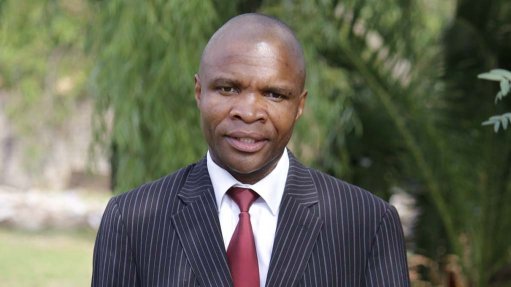
With its immense resource wealth and potential to boost economic growth, employment and innovation, the ocean in the Eastern Cape could become the new economic frontier, writes Nelson Mandela University Infrastructure Development & Engagement Unit associate Bongani Mankewu.
Globally, the ocean economy is becoming more significant within the policy and economic realm as land-based resources near their peak extraction. Worryingly, South Africa's government has a hazy comprehension of this resource.
A resource such as this, if responsibly managed, could resolve many of the pressing issues facing humanity today, especially in a provincial setting like the Eastern Cape.
Nelson Mandela University commissioned an Ocean Strategic Road Map highlighting fifty-nine projects, their establishment values, contribution to gross domestic product (GDP), and potential for creating jobs. By 2038, this represents 140% of the Eastern Cape's anticipated ocean economy GDP, and 69% of the opportunity for employment.
There is no denying that the ocean serves as a source of trade, transport, energy, food, tourism, recreation and many other goods and services around the world.
The resource lies at the doorstep of the Eastern Cape, a province engulfed in poverty and deprived of sustainable trade, making it pretty much uninhabitable with an extreme unemployment rate.
Sectors established as ocean economy stimulators of the province include Marine transport and manufacturing, offshore oil and gas exploration, aquaculture, marine protection services and ocean governance, small harbor development and coastal and marine tourism. furthermore, two more sectors were identified as "enabling areas", skills and capacity building and research, technology and innovation.
There is an impasse here. A tremendous amount of quality research and effort put forth by patriotic academics and other private sector actors is wasted at an enormous cost to the people of the Eastern Cape.
The literature overwhelmingly agrees that South Africa should focus on five bold priorities that will reignite the country's progress. By 2030, the "big five" could add $87-billion to annual GDP and create 3.4-million jobs if the government and businesses prioritize them.
The Eastern Cape's Ocean Strategic Road Map is reasonably responsive to the five bold priorities that the literature suggests: advanced manufacturing, infrastructure productivity, natural gas, service exports and raw and processed agricultural exports.
By successfully implementing these priorities, South Africa will be in a better position to achieve its long-held vision of a "rainbow nation" characterised by shared prosperity.
The government of the Eastern Cape ought to explain why it is hesitant to implement a stimulus program that will boost its GDP per capita while creating shared prosperity.
Is the administration of Premier Oscar Mabuyane in the best interests of the population of the Eastern Cape, especially the idle unemployed youth?
Does Mabuyane possess the moral authority to work with academia and other interested parties to attain progress and advancement in this province?
The Eastern Cape population, especially the youth, will have to dedicate time and energy thinking about the above questions in order to advance this province that was once considered the fountainhead of civilisation.
I want to believe academia and the private sectors have long opened their doors to work towards the advancement of the Eastern Cape province.
To maintain a prominent position as the fountainhead of civilization and development, it must be determined who or what impedes progress in this province.
Mankewu is an associate of the Infrastructure Development & Engagement Unit at Nelson Mandela University. He writes in his personal capacity.